All Stories
-
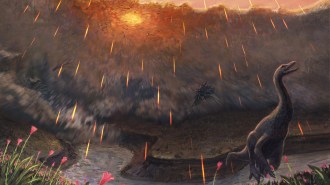 Paleontology
PaleontologyThe Age of Dinosaurs may have ended in springtime
Fossilized fish bones suggest that the massive asteroid strike at the end of the Cretaceous Period occurred during the Northern Hemisphere’s spring.
By Sid Perkins -
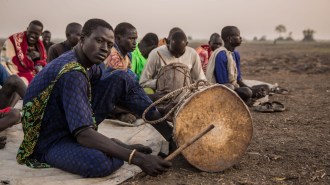 Genetics
GeneticsAfrica’s oldest human DNA helps unveil an ancient population shift
Long-distance mate seekers started staying closer to home about 20,000 years ago.
By Bruce Bower -
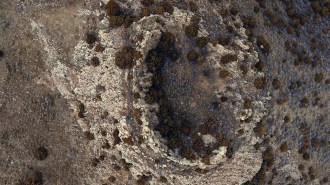 Planetary Science
Planetary ScienceAn ancient impact on Earth led to a cascade of cratering
For the first time, scientists have discovered clusters of craters on Earth that were formed by the impacts of material thrown out of a larger crater.
By Sid Perkins -
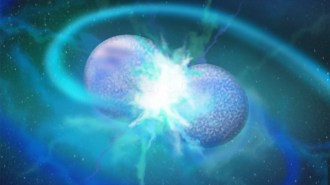 Astronomy
AstronomyA rare collision of dead stars can bring a new one to life
These carbon- and oxygen-covered stars may have formed from an unusual merging of two white dwarfs.
By Nikk Ogasa -
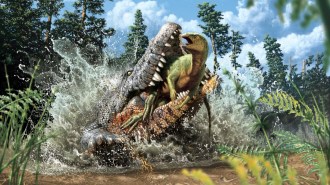 Paleontology
PaleontologyFossils show a crocodile ancestor dined on a young dinosaur
The 100-million-year-old fossil of a crocodile ancestor contains the first indisputable evidence that dinosaurs were on the menu.
-

-

Computing has changed everything. What next?
Editor in chief Nancy Shute discusses the last century's extraordinary advances in computing, and what they might mean for the future
By Nancy Shute -
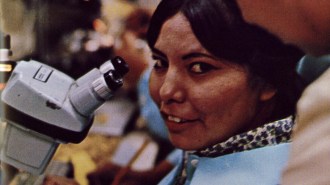 Computing
ComputingCore memory weavers and Navajo women made the Apollo missions possible
The stories of the women who assembled integrated circuits and wove core memory for the Apollo missions remain largely unknown.
-
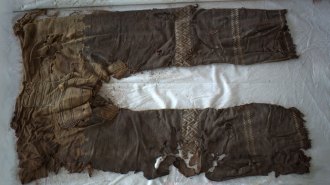 Archaeology
ArchaeologyThe world’s oldest pants stitched together cultures from across Asia
A re-creation of a 3,000-year-old horseman’s trousers helped scientists unravel its complex origins.
By Bruce Bower -
 Health & Medicine
Health & MedicineAn anime convention in November was not an omicron superspreader event
Vaccines, ventilation and other safety measures probably prevented the variant’s spread at Anime NYC, reports suggest.
-
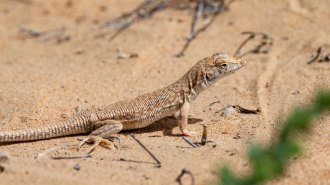 Animals
AnimalsHow lizards keep detachable tails from falling off
A hierarchical structure of micropillars and nanopores allows the tail to break away when necessary while preventing it from easily detaching.
By Anna Gibbs -
 Archaeology
ArchaeologyA technique borrowed from ecology hints at hundreds of lost medieval legends
An ecology-based statistical approach may provide a storybook ending for efforts to gauge ancient cultural diversity.
By Bruce Bower